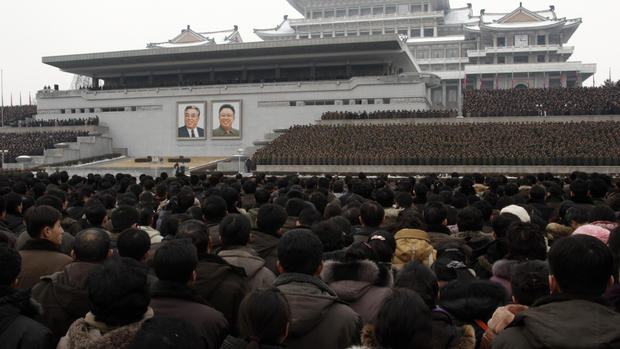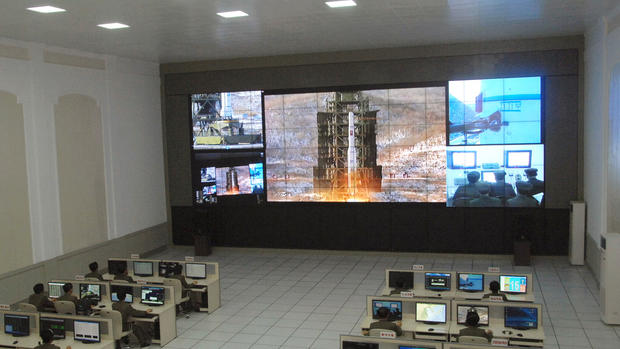Crippled N. Korean satellite could orbit for years: Expert
TOKYO A North Korean satellite launched into space last week appears to be malfunctioning, but could remain in orbit for several years, a leading expert in the United States said Tuesday.
North Korea says the satellite is working. U.S. officials have said it is tumbling in orbit, but even so, its successful launch into space marks a milestone in the impoverished country's technological advances, especially given accusations that the rocket launch was actually a test of systems that could be used to launch long-range missiles targeting the U.S.
Data from trackers in South Africa and Britain suggest the brightness of the satellite has been fluctuating, which indicates it is tumbling as it orbits. That likely means a malfunction in the probe's stabilizers, because it was designed to constantly point toward Earth.
- North Korean satellite may already be dead
- Experts say North Korea still years away from reliable rockets
- North Korea says it successfully launched satellite into orbit
Even so, the probe is continuing to complete orbits and could do so for several years, said Jonathan McDowell of the Harvard-Smithsonian Center for Astrophysics. McDowell said that since the cause of the malfunction remains unclear, it is conceivable that North Korea could determine how to fix it and regain control.
"The best guess at this point is that it is probably broken,"' he said by telephone from Cambridge, Massachusetts. "It is certainly continuing to complete orbits. It is up there and it will be up there for years. But the thing is sort of twirling around. It seems to me the satellite is not working."
North Korea has hailed the launch as a gift to the nation's late leader, Kim Jong Il, and proof that his young son, Kim Jong Un, has the strength and vision to lead the country.
State news agency KCNA said Wednesday that the satellite is transmitting signals of revolutionary hymns such as "Song of General Kim Il Sung," referring to the founder of North Korea, who is the grandfather of the current leader.
The United States, Japan, Britain and others see the rocket launch as a provocation and violation of U.N. Security Council resolutions banning North Korea from developing its nuclear and missile programs. The Security Council has said it would urgently consider "an appropriate response."
"This launch is about a weapons program, not peaceful use of space," U.S. State Department spokeswoman Victoria Nuland said. Even the North's most important ally, China, expressed regret.
Though missile and satellite launch technologies overlap significantly, and Pyongyang is clearly hoping to use the rocket launches to develop a deployable nuclear-tipped missile capable of threatening the United States, McDowell said its apparent success in getting the satellite into orbit may cloud efforts to further punish the North.
"For North Korea, it lets them say to their people that they are an advanced 21st century country, although they can't feed their people," he added. "They can say that this was not a missile, it was a satellite launch. That gives them potentially more credibility on the international stage that they are being unfairly treated."
A similar attempt in April failed about two minutes after takeoff.
North Korean officials say a 2009 launch put a satellite into orbit, but the U.S. and other outside observers say they have seen no evidence that it did so.

